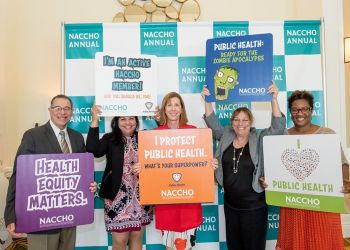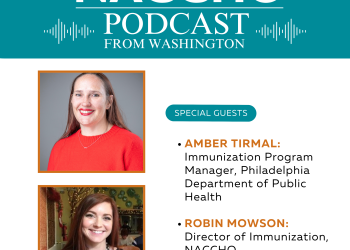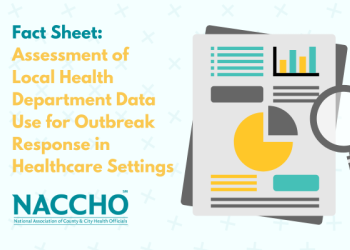WASHINGTON, DC, May 23, 2023 — The National Association of County and City Health Officials (NACCHO), the voice of the country’s nearly 3,000 local health departments, with support from the Centers for Disease Control and Prevention (CDC), has selected three local health departments to participate as host sites in Cohort III of the Equipping Local Health Departments to Address Vaccine Hesitancy Project. Through this project, local health departments will receive $100,000 to address issues related to vaccine hesitancy and misinformation, establish partnerships, and identify other areas for improvement of increasing vaccine confidence.
The awardees are:
- City of Long Beach Health and Human Services, California
- Santa Cruz County Health Services Agency, California
- Huron County Public Health, Ohio
The Equipping Local Health Departments to Address Vaccine Hesitancy Project addresses vaccine hesitancy in at-risk populations in under-vaccinated communities. The project provides local health departments with resources and training to address vaccine hesitancy and improve vaccine confidence.
The selected sites will receive Rapid Community Assessment (RCA) training. RCA is a process developed by CDC for quickly collecting community insights about a public health issue to inform program design. The assessment involves reviewing existing data and conducting community-based interviews, listening sessions, observations, social listening, and surveys. This resource helps local health departments identify communities at-risk for low vaccine uptake, better understand the local community’s vaccine needs, identify areas of intervention, and prioritize potential intervention strategies.
After conducting the RCA training in the local health departments, participants will develop plans to address these barriers.
###
About NACCHO
The National Association of County and City Health Officials (NACCHO) represents the nation’s nearly 3,000 local governmental health departments. These city, county, metropolitan, district, and tribal departments work every day to protect and promote health and well-being for all people in their communities. For more information about NACCHO, please visit www.naccho.org.






